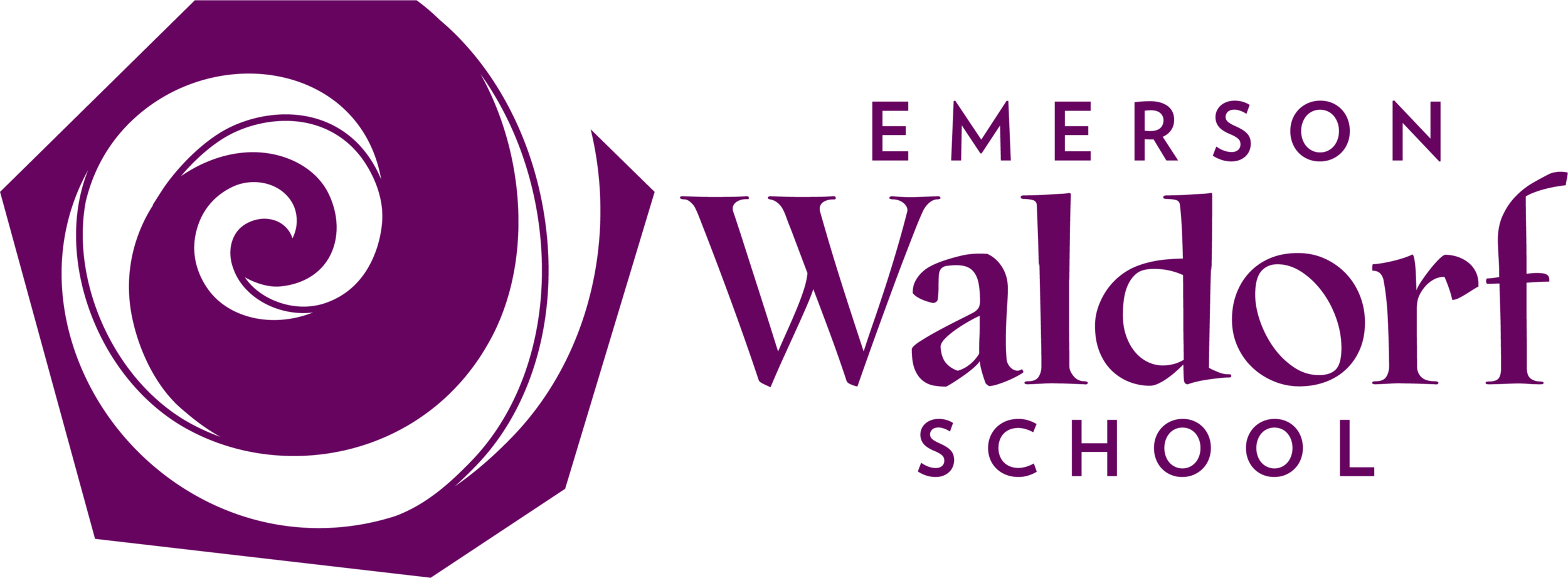High School Curriculum
curriculum
11th Grade
Power of Analysis
Eleventh Grade students have a growing capacity for self-reflection. They begin to examine questions of identity as they consider their own paths. Literature and humanities courses delve into the works of great artists, convictions of great leaders, and the pursuit of one's destiny in an ever-changing world. Eleventh grade students also have a deepening capacity for analytical thinking and perception beyond that which can be directly experienced. The eleventh grade curriculum confronts unseen worlds (the atomic, the cellular, the electrical, the infinite), allowing students to deconstruct the physical world with their thinking capacities and discover new lawful relationships.
• Main Lesson Blocks: Dante; World History; History through Music; Projective Geometry; Botany; Cell Biology, Electricity and Magnetism; Atomic Chemistry
• Academic Track Courses: English III; Math III; Spanish III; US History II; Astronomy
SPANISH (9TH-11TH GRADES)
In high school, students go through a thorough review of grammar so that they can move on to a deeper study of various aspects as they move on in the grades. Let’s not forget that the study of a language is not just the study of words to communicate; it is the study of a culture, and, in the case of Spanish, of many cultures. These include peoples, places, foods, literature and poetry, traditions, art, music and songs, and so many more aspects. Foreign language learning not only exposes students to other peoples’ way of thinking and feeling, it also cultivates inner sense and tolerance of and openness to other cultures helping them to become globally attuned.
For those interested, there is also the possibility to participate in the Waldorf Exchange Program, which usually happens during 10th grade.
Music
The music program in the high school focuses on developing mastery of one instrument over multiple years, while allowing for some flexibility to switch between programs if interest shifts after a year or two. We have recently been offering music as elective classes twice a week, choosing from an introduction to guitar (and some ukulele), advanced guitar, percussion ensemble, social strings, and chorus. Human development shows that musical engagement is an important complement to academic work, leading students into the flow state immersed in the beauty and creativity of tone. Practice of musical instruments is therapeutic and activates dexterity in the fingers, subtlety and power in breathing. Music both calms the nervous system and invigorates the nervous system, allowing for more informational learning to be ‘digested’ more deeply. As most students are commonly listening to recorded music at home, it is vital that they engage music as a creative experience at school, and so we require all students to participate at varying levels of skill in our program.
Drawing, Painting, Sculpture and Place-based Crafts
Every high school student participates in a sequence of Visual Arts classes designed to develop skills and gain insight into their own creative capacities. By refining their technical skills, intellectual understanding of material and forms, and becoming acquainted with history and practice, students develop a strong relationship to their own creative process and experience themselves as artistically capable in a variety of media. Drawing, painting, sculpture and a variety of crafts rooted in local tradition facilitate student dialogue with materials that also align with particular developmental stages. They are therefore brought at specific times with particular pedagogical aims.
Electives
The high school offers a variety of project-based electives, including photography, collage, robotics, world cultures, poetry, and more!
Junior Internships
In the fall of a student’s junior year, students participate in a one-week internship exploring an industry or profession of their choosing. This is a meaningful work experience that lasts at least five full working days. On-site supervisors complete an evaluation at the end of the week, and the juniors present their experiences to the school community. Recent internships have been at a veterinary clinic, goat farm, Habitat for Humanity, environmental consulting groups, hospital Labor & Delivery unit, and with political lobbyist groups.
College Counseling
Our goal is to support each student in identifying and being accepted into the choice that is his or her best fit. Options include colleges, universities, conservatories, art institutes, vocational programs, and apprenticeships. Emerson Waldorf School honors the individual student by providing personalized college and career counseling. Through our curriculum and through the guidance program, we strive to assist students in discovering and venturing out onto their paths. Emerson Waldorf has a 100% college acceptance rate, but not every student chooses that route. Ninety percent of EWS graduates attend a four-year college, university, conservatory, or art institute immediately after high school graduation. The other ten percent attend two-year institutions, work, travel or take a “gap year” before matriculating at a four-year college.
Recent College Acceptances
American University
Appalachian State University
Bates College
Bowdoin College
Brandeis University
Bryn Mawr College
Clark University
Cornell University
Davidson College
Davenport University
Dartmouth College
Denison University
Drexel University
Duke University
Embry-Riddle Aeronautical Univ
Emerson College
Elon University
George Washington University
Goucher College
Guilford College
Hampshire College
Haverford College
Ithaca College
Juniata College
Louisiana State University
Loyola University of Maryland
Mount Holyoke College
Muhlenberg College
Johns Hopkins UniversityNew York University
North Carolina State University
Oberlin College
Occidental College
Oxford College of Emory University
Pennsylvania State University
Queens University of Charlotte
Rhode Island School of Design
Skidmore College
Tufts University
Tulane University
University of Kentucky
University of Mary Washington
University of North Carolina- Asheville
University of North Carolina- Chapel Hill
University of North Carolina- Charlotte
University of North Carolina- Greensboro
University of Vermont
Ursinus College
Virginia Tech
Wake Forest University
Warren Wilson College
Wellesley College




